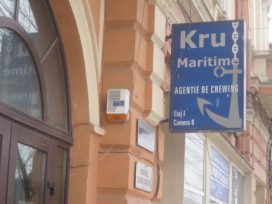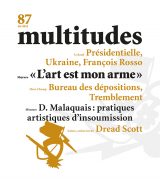The diversity of temporalities, which lies at the heart of the concept
of flexible labour (“intermittence”), makes it difficult, in the current
state of the struggles, to define the domains where co-operation between social actors is possible within the alternatives producing new organisations. Teachers, researchers and performing artists, locked in an elite status, albeit underwritten by a massive dose of precarity, have been prodded by this new reality to think about different productive territories and different forms of public power which would make alternative organisations possible.
From that angle, we will see that the city is emerging both as a principallocus for the expression of co-operation and creation, and as the most effectively enabling form of governance to see this potential realised. In this light, we will look at two actual experiences of
Workers “coordinations” in French port cities, (Dunkirk and Saint Nazaire).

